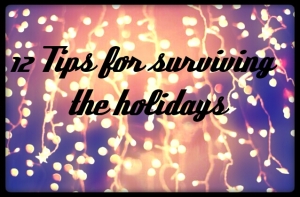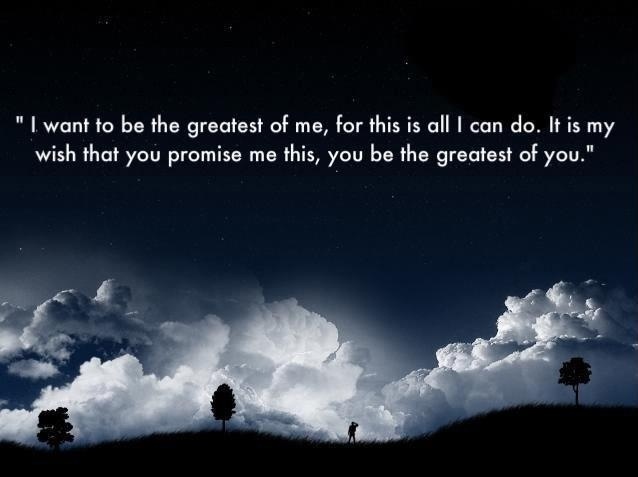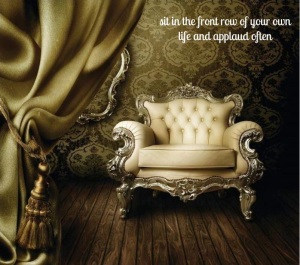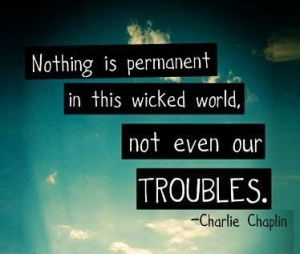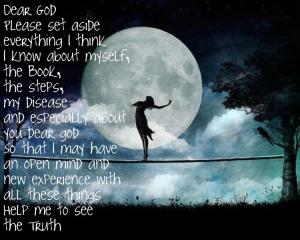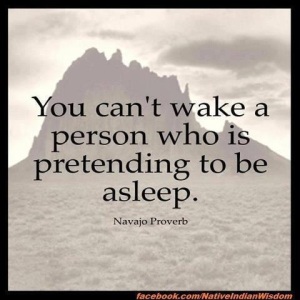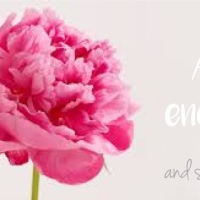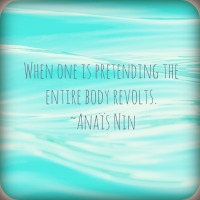I came across this article on another recovery site and was blown away by much of it it I related to. The piece is by Terence Gorski & Merlene Miller Author of Staying Sober: A guide for relapse prevention. I had never seen this piece and certainly plan to read more however as I read each phase my mind was racing with EXACT examples of how these very specific indicators affect my life. I have copied the 37 signs and in italics use very real examples of how I relate. I am extraordinarily grateful that I did not actually relapse and I feel certain that my constant appearance at meetings has been my savior. To clarify… I did not write this article I came across it and felt it helpful my thoughts/examples are in italics…. I do hope this helps someone but as they say, take what you need and leave the rest.
37 Warning signs of relapse: The Phases and Warning Signs of Relapse by Terence Gorski & Merlene Miller
Phase 1: The Return of Denial. During this phase the alcoholic becomes unable to recognize and honestly tell others what he/she is thinking or feeling. The most common symptoms are:
1. Concern about Well Being. The alcoholic feels uneasy, afraid, and anxious. At times he/she is afraid of not being able to stay sober. This uneasiness comes and goes and usually only lasts a short period of time.
2. Denial of the Concern. In order to tolerate these periods of worry, fear and anxiety, the alcoholic ignores or denies these feelings in the same way he/she had at one time denied the alcoholism. The denial may be so strong that there is no awareness of it while it is happening. Even when there is an awareness of the feelings, they are often forgotten as soon as the feelings are gone. It is only when the alcoholic thinks back about the situation at a later time that he/she is able to recognize the feelings of anxiety and the denial of the feelings.
{I often deny my true feelings of anxiety ~ it is usually associated with the fact I have been sober for a while… ie: I’ve been sober for x amount of years, I should be better than this.}
Phase 2: Avoidance and Defensive Behaviour. During this phase the alcoholic doesn’t want to think about anything that will cause the painful and uncomfortable feelings to come back. As a result he/ she begins to avoid anything or anybody that will force an honest look at self. When asked direct questions about well being, he/she tends to become defensive. The most common symptoms are:
3. Believing “I’ll never drink again” The alcoholic convinces self that he/ she will never drink again and sometimes will tell this to others, but usually keeps it to self. Many are afraid to tell their counselors or other AA members about this belief. When the alcoholic firmly believes he/she will never drink again, the need for a daily recovery program becomes less important.
4. Worrying about Others Instead of Self. The alcoholic becomes more concerned about the sobriety of others than about personal recovery. He/she doesn’t talk directly about these concerns but privately judges the drinking of friends and spouse and the recovery programs of other recovering persons. In AA this is called “working the other guy’s program”.
{I have been very guilty of this in the past few years… almost to an acute level. Late last year I had a massive break through in recovery and have not been doing it. I definitely noticed a difference in my overall sense of well being. The last few weeks I’ve been doing it slightly…}
5. Defensiveness. The alcoholic has a tendency to defend self when talking about personal problems or his/her recovery program even when no defence is necessary.
{At my worst in the last few years I was more defensive than the army.}
6. Compulsive Behavior. The alcoholic becomes compulsive ( stuck, fixed or rigid) in the way he/she thinks and behaves. There is a tendency to do the same things over and over again without a good reason. There is a tendency to control conversations either by talking too much or not at all. He/ she tends to work more than is needed, becomes involved in many activities and may appear to be the model of recovery because of heavy involvement in AA 12 step work and chairing AA meetings. He/she is often a leader in counselling groups by “playing the therapist”. Casual or informal involvement with people, however, is avoided.
{In the last few years I have been a work-aholic, super involved with “service” but getting no real benefit… just makes me look like I’m doing the right thing. Talk way too much but actually say/reveal NOTHING of my true self. Avoid most social situations.}
7. Impulsive Behavior. Sometimes the rigid behavior is interrupted by actions taken without thought or self control. This usually happens at times of high stress. Sometimes these impulsive actions cause the alcoholic to make decisions that seriously damage his/ her life and recovery program.
8. Tendencies towards Loneliness. The alcoholic begins to spend more time alone. He/she usually has good reasons and excuses for staying away from other people. These periods of being alone begin to occur more often and the alcoholic begins to feel more and more lonely. Instead of dealing with loneliness by trying to meet and be around other people, he or she becomes more compulsive and impulsive.
(Generally I like being alone but can do it way too much and I become lonely and have an inability to reach out.}
Phase 3: Crisis Building. During this phase the alcoholic begins experiencing a sequence of life problems that are caused by denying personal feelings, isolating self and neglecting the recovery program. Even though he/she wants to solve these problems and works hard at it, two new problems pop up to replace every problem that is solved. The most common symptoms are:
{all the time for the last few years}
9. Tunnel Vision. Tunnel vision is seeing only one small part of life and not being able to see “the big picture”. The alcoholic tends to look at life as being made up of separate unrelated parts. He/she focuses on one part without looking at the other parts or how they are related. Sometimes this creates the mistaken belief that everything is secure and going well. At other times this results in seeing only what is going wrong. Small problems are blown up out of proportion. When this happens, the alcoholic comes to believe he/she is being treated unfairly and has no power to do anything about it.
{such as; I’m 41 and living with my mum and I’m a single mother and life sucks at the moment ~ as opposed to yah me. I’m sober have a healthy child, a beautiful relationship with my mum, amazing supportive friends and I’m studying to create a brighter future}
10. Minor Depression. Symptoms of depression begin to appear and to persist. The person feels down, blue, listless, empty of feelings. Oversleeping becomes common. He/she is able to distract self from these moods by getting busy with other things and not talking about the depression.
{frequently ~ although getting better}
11. Loss of Constructive Planning. The alcoholic stops planning each day and the future. He/she often mistakes the AA slogan “ One day at a time” to mean one shouldn’t plan or think about what he/she is going to do. Less and less attention is paid to details. He/she becomes listless. Plans are based more often on wishful thinking (how the alcoholic wishes things would be) than reality (how things really are).
{for the last few years I have had very little motivation, no interest in hobbies, can’t seem to keep my house/space tidy and orderly}
12. Plans Begin to Fail. Because he/she makes plans that are not realistic and does not pay attention to details, plans begin to fail. Each failure causes new life problems. Some of these problems are similar to the problems that occurred during drinking. He/she often feels guilty and remorseful when problems occur.
{I tend to rush in with my next new great idea, interest, hobby & have no ability to follow through}
Phase 4: Immobilization. During this phase, the alcoholic is totally unable to initiate action. He/ she goes through the motions of living, but is controlled by life rather than controlling life. The most common symptoms are :
13. Daydreaming and Wishful Thinking. It becomes more difficult to concentrate. The “if only” syndrome becomes more and more common in conversation. The alcoholic begins to have fantasies of escaping or “being rescued from it all” by an event unlikely to happen.
{constant fantasies about being rescued by an enormous lotto win, sometimes spending a whole day planning on how I will invest/spend my money rather than taking actual steps toward creating a reality ~ I actually had to stop buying lotto tickets to get this fantasy under control}
14. Feelings that nothing can be solved. A sense of failure begins to develop. The failure may be real or it may be imagined. Small failures are exaggerated and blown out of proportion. The belief that “I’ve tried my best and sobriety isn’t working out” begins to develop.
{at the height of my depression last year this was my constant fear ~ Sobriety isn’t working for me the way it works for others}
15. Immature wish to be happy. A vague desire to “be happy” or to have “things work out” develops without the person identifying what is necessary to be happy or to have things work out. Magical thinking is used : wanting things to get better without doing anything to make them better.
{yes please; a little magic right now would be lovely}
Phase 5: Confusion and Overreaction. During this period the alcoholic can’t think clearly. He/ she becomes upset with self and others, becomes irritable and over reacts to small things.
{irritable is an understatement, snappy & rude and no idea why}
16. Periods of confusion. Periods of confusion become more frequent, last longer, and cause more problems. The alcoholic often feels angry with self because of inability to figure things out.
{this is has been a constant source of frustration for me}
17. Irritation with friends. Relationships become strained with friends, family, counselors and AA members. The alcoholic feels threatened when these people talk about the changes in behavior and mood that are becoming apparent. The conflicts continue to increase in spite of the alcoholic’s efforts to resolve them. The alcoholic begins to feel guilty and remorseful about his/her role in these conflicts.
{over the last few years I have pushed away some good friends allowing petty conflicts to arise and my unwillingness to back down}
18. Easily Angered. The alcoholic experiences episodes of anger, frustration, resentment, and irritability for no real reason. Overreaction to small things becomes more frequent. Stress and anxiety increase because of the fear that overreaction might result in violence. The efforts to control self adds to the stress and tension.
{this has been a real concern for me and probably the most out of character of my behavior ~ thankfully in the past 6 months it is settling down}
Phase 6: Depression. During this period the alcoholic becomes so depressed that he/she has difficulty keeping to normal routines. At times there may be thoughts of suicide, drinking or drug use as a way to end the depression. The depression is severe and persistent and cannot be easily ignored or hidden from others. The most common symptoms are:
{about 7~8 months ago my depression was so acute I was more interested in suicide than drinking. It was a very frightening experience}
19. Irregular Eating Habits. The alcoholic begins overeating or under eating. There is weight gain or loss. He/ she stops having meals at regular times and replaces a well balanced, nourishing diet with “junk food”.
{the last few years have resulted in some bouts of over eating, nothing too extreme [YET] but it does concern me}
20. Lack of desire to take action. There are periods when the alcoholic is unable to get started or to get anything done. At those times he/she is unable to concentrate, feels anxious, fearful, uneasy, and often feels trapped with no way out.
{I have often felt unable to get out of bed or begin simple tasks such as putting away laundry}
21. Irregular sleeping habits. The alcoholic has difficulty sleeping and is restless and fitful when sleep does occur. Sleep is often marked by strange and frightening dreams. Because of exhaustion, he/she may sleep for twelve to twenty hours at a time. These “sleeping marathons” may happen as often as every six to fifteen days.
{Chronic tiredness, unable to get to sleep then wanting to sleep all day, have had tests, changed diet all sorts of things and this area has not improved}
22. Loss of daily structure. Daily routine becomes haphazard. The alcoholic stops getting up and going to bed at regular times. Sometimes he/she is unable to sleep, and this results in over sleeping at other times. Regular mealtimes are discontinued. It becomes more difficult to keep appointments and to plan social events. The alcoholic feels rushed and overburdened at times, and then has nothing to do at other times. He/ she is unable to follow through on plans and decisions and experiences tension, frustration, fear, or anxiety that keep him/her from doing what should be done.
{the last few years I have become irresponsible & unreliable, often missing/changing appointments. Usually missing or cancelling or “forgetting” social engagements}
23. Periods of deep depression. The alcoholic feels depressed more often. The depression becomes worse, lasts longer, and interferes with living. The depression becomes so bad that it is noticed by others and cannot easily be denied. The depression is most severe during unplanned or unstructured periods of time. Fatigue, hunger, and loneliness make the depression worse. When the alcoholic feels depressed, he/she separates from other people, becomes irritable and angry with others, and often complains that nobody cares or understands what he/ she is going through.
Phase 7: Behavioural Loss of Control. During this phase the alcoholic becomes unable to control or regulate personal behaviour and a daily schedule. There is still a heavy denial and no full awareness of being out of control. His/ her life becomes chaotic and many problems are created in all areas of life and recovery, The most common symptoms are:
24. Irregular attendance at AA and Treatment meetings. The alcoholic stops attending AA regularly and begins to miss scheduled appointments for counselling or treatment. He/she finds excuses to justify this and doesn’t recognize the importance of AA or treatment. He/ she develops the attitude that “AA and counselling aren’t making me feel better, so why should I make it a priority?” “Other things are more important.”
{thankfully I have never strayed form meetings, probably the only reason I did not actually relapse}
25. Development of an “I don’t care” attitude. The alcoholic tries to act as if he/ she doesn’t care about the problems that are occurring. This is to hide the feelings of helplessness and a growing lack of self respect and self confidence.
{such as “meh, whatever! It will sort itself out ~ pretending to leave it to my HP}
26. Open Rejection of Help. The alcoholic cuts self off from people who can help. He/ she does this by having fits of anger that drive others away, by criticizing and putting others down, or by quietly withdrawing from others.
{no thanks, I’m fine}
27. Dissatisfaction with life. Things seem so bad that the alcoholic begins to think that he/she might as well drink because things couldn’t get worse. Life seems to have become unmanageable since drinking stopped.
28. Feelings of powerlessness and helplessness. The alcoholic develops difficulty in “getting started”, has trouble thinking clearly, concentrating, thinking abstractly, and feels that he/she can’t do anything and begins to believe there is no way out.
Phase 8: Recognition of Loss of control. The alcoholic’s denial breaks and suddenly he/ she recognizes how severe the problems are, how unmanageable life has become, and how little power and control he/she has to solve any of the problems. This awareness is extremely painful and frightening. By this time he/ she has become so isolated that there is no one to turn to for help. The most common symptoms are:
29. Self Pity. The alcoholic begins to feel sorry for self and often uses self pity to get attention at AA or from family members.
{oh help me mum & dad, I can’t cope anymore. My life is crap and I need you to rescue me, it’s not really my fault, it’s x,y,z ~ excruciatingly painful to relate to this} }
30. Thoughts of social drinking. The alcoholic realizes that drinking or using drugs would help him/her to feel better and begins to hope he/ she can drink normally again and be able to control it. Sometimes these thoughts are so strong that they can’t be stopped or put out of mind. There is a feeling that drinking is the only alternative to going crazy or committing suicide. Drinking actually looks like the sane and rational alternative.
{“maybe I would have better control now that I’m a parent?” OR “it’s not fair, other mummies can drink”}
31. Conscious Lying. The alcoholic begins to recognize the lying , the denial and the excuses but is unable to interrupt them.
32. Complete loss of self confidence. The alcoholic feels trapped and overwhelmed by the inability to think clearly and take action. This feeling of powerlessness causes the belief that he/ she is useless and incompetent. As a result there is the belief that life is unmanageable.
{Until 7 0r 8 months ago I was completely trapped by my inability to think my way out}
Phase 9: Option reduction. During this phase the alcoholic feels trapped by the pain and inability to manage his/her life. There seem to be only 3 ways out, insanity, suicide or drug use. He/ she no longer believes that anyone or anything can help them. The most common symptoms are :
33. Unreasonable Resentment. The alcoholic feels angry because of the inability to behave the way he/she wants to. Sometimes the anger is with the world in general, sometimes with a particular person, and sometimes with self.
{angry with self, with friends, with all married people, with all wealthy people, with all happy people}
34. Discontinuance of all treatment and AA. The alcoholic stops attending all AA meetings. Those taking Anabuse will forget to take it or deliberately avoid taking it regularly. When a helping person is part of treatment, tension and conflict develop and become so severe that the relationship usually ends. The alcoholic drops out of counselling even though he/she needs help and knows it.
35. Overwhelming Loneliness, Frustration, Anger and Tension. The alcoholic feels completely overwhelmed. He /she believes there is no way out except drinking, suicide or insanity. There are intense fears of insanity and feelings of helplessness and desperation.
Phase 10: Acute Relapse Episode. During this phase the alcoholic becomes totally unable to function normally. He/she may use alcohol or drugs or may become disabled with other conditions that make it impossible to function. The most common symptoms are:
36. Loss of behaviour control. The alcoholic experiences more and more difficulty in controlling thoughts, emotions, judgements, and behaviours. This progressive and disabling loss of control begins to cause serious problems in all areas of life. It begins to affect health and well being. No matter how hard he/she tries to regain control it is impossible to do.
37. Acute Relapse Episode. The alcoholic experiences periods of time when he/ she is totally unable to function normally. These periods become more frequent, last longer, and begin to produce more serious life problems. The relapse cycle is ended with a serious crisis which causes the person to become totally unable to function for a period of time due to one or more of the following:
A. Degeneration of all life areas. The alcoholic may become unable to contribute to the work, social, family, and intimate areas of life. As a result, all life areas suffer due to neglect.
B. Alcohol or drug Use. The alcoholic may begin to use alcohol or other drugs as a means to escape the pain and desperation. There may be an attempt to control drinking by limiting the amount or attempting one short term binge. The ability to control drinking is soon lost. This sometimes happens very quickly. Sometimes it occurs after a period of controlled drinking. The alcoholic returns to out-of –control drinking with symptoms experienced during the last period of alcoholic drinking.
C. Emotional Collapse. The alcoholic may become emotionally unable to function, may overreact, or become emotionally numb, or cry, or fly into a rage for no reason at all.
D. Physical Exhaustion. It may become impossible for the alcoholic to continue to function due to physical exhaustion.
E. Stress Related Illnesses. The alcoholic may become physically sick due to the severe stress that has been occurring over a long period of time.
F. Psychiatric Illness. The alcoholic may develop a severe psychiatric illness such as psychosis, severe anxiety, or severe depression. The psychiatric illness may be so severe that it forces the alcoholic into treatment.
G. Suicide. The alcoholic may become suicidal and may attempt or actually commit suicide.
H. Accident Proneness. The alcoholic may become careless and unable to take normal precautions in acts of living resulting in a sequence of accidents. These accidents may take the form of car accidents, falls, burns etc. Often the accidents are life threatening or cause serious injury.
I. Disruption of Social Structure. The alcoholic may be unable to maintain involvement in normal life activities and may become socially unable to function.
today I am very simply grateful for all that I have…


